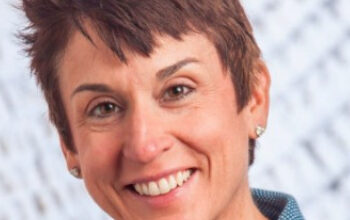Josh Bergeron: Not all sludge is created equal
Published 12:15 pm Sunday, November 30, 2014
With well informed opponents and utility employees divided over the exact contents of biosolid material, or sludge, many average residents may be left wondering: what exactly is this mysterious brown substance?
First, and most importantly, sludge isn’t the best descriptive word for the dirt-like material. In the case of Salisbury and Charlotte, it’s not exactly wet, like the name sludge implies. Charlotte’s sludge is a little more sponge-like than Salisbury’s but still feels and looks like dirt.
In Charlotte’s case, imagine poking a wet sponge and watching it bounce back into place. That’s exactly what happens when you touch a mound of sludge. In Salisbury’s case, the sludge feels more like dirt — the kind you find in your backyard.
The biggest disagreement between Charlotte-Mecklenburg Utilities and families in Rowan and Cabarrus counties is the contents of sludge.
While sludge contains some of the same chemicals as fertilizer, opponents of CMUD’s pending permits are worried it contains cancer causing chemicals, nicknamed PCBs.
Government agencies eloquently detail the evolution of wastewater treatment in literature on biosolid material, saying sludge is a better way to dispose of the waste. On it’s website, The Environmental Protection Agency for example states: “Thirty years ago, thousands of American cities dumped their raw sewage directly into our nation’s rivers, lakes, and bays. Today, because of improved wastewater treatment, our waterways have been cleaned up and made safer for recreation and seafood harvest. And, because of the strict Federal and state standards, the treated residuals from wastewater treatment (biosolids) can be safely recycled.”
Opponents of Charlotte’s permits say there’s real concern over the contents of sludge, as CMUD allowed PCBs to leak into its sludge in February. Other opponents, and even some of the same ones, are worried about heavy metals and other chemicals, not frequently tested for, ending up in sludge on farm fields.
Opponents say testing for all contaminants should be conducted. CMUD representatives say the contaminants not frequently tested for occur in such small numbers that tests aren’t required. The truth is that anything that ends up in the sewer system could end up in sludge. Various stages of treatment may remove contaminants, but, if PCBs are illegally dumped into the sewer, they could end up on farmland.
PCBs are known to cause cancer, according to the EPA.
What about the farmers?
CMUD is in the sludge business. Opponents are interested in keeping their neighborhoods clean.
Farmers, on the other hand, are in the business of producing food. The ones mentioned in two stories published in the Nov. 23 edition of the Salisbury Post raised cattle. Both Oscho Deal and Harry Corriher firmly stated that sludge hadn’t caused any negative health effects on their cattle. Corriher and Deal stressed that the sludge reduces the per-head cost of raising their animals.
Then again, Corriher and Deal receive their biosolids from Salisbury. Not all sludge is created equal. For example, Charlotte’s is slightly less watery than Salisbury’s. Charlotte also serves more customers than Salisbury.
There’s plenty of research on sewage sludge, but the most credible research doesn’t state with absolute certainty that sewage sludge is deadly or pose a health risk.
A study from the North Carolina Water Science Center stated: “The impact of land applied municipal biosolids to agricultural fields on delivery of nutrients, bacteria, metals and emerging contaminants to surface water and groundwater resources is largely unknown. The lack of data from existing sites makes it difficult for the NC Division of Water Quality to assess how well existing regulations protect the waters of the State or to even recommend effective changes to regulations or procedures.”
Again, a conflict comes up between CMUD and opponents of their permits. CMUD statement is that it follows the laws and even surpasses them in some cases. Opponents, such as Charlotte resident Dr. Lance Riley says the state’s laws are too relaxed.
Residents may not have a say in whether sludge comes into their community, though that’s what people like Riley, who has family in Gold Hill, want — their voice to be heard.
The problem is Riley has a Ph.D. in aquatic science. Chemical abbreviations are second nature to Riley and leaders of the anti-sludge movement. Using chemical abbreviations doesn’t mean much to a normal North Carolina resident — a bank teller, construction worker or retail store employee, for example.
People who don’t live and breathe biosolids, myself being one of them, are likely unfamiliar with many of the fine details that concern health hazards. Before the permits are approved, Rowan and Cabarrus residents are owed a common-sense, non-partisan explanation of what sewage sludge is and how it could affect the local community’s health.
Nearly every product sold comes with a disclaimer, why shouldn’t sludge come with the same.



